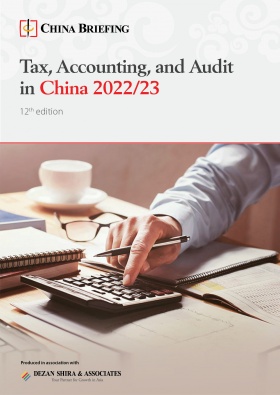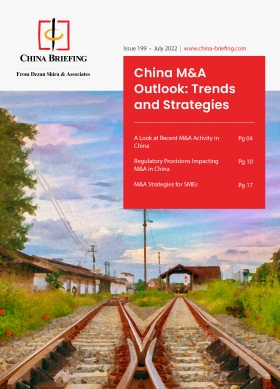Northbound Trading of the China-Hong Kong Swap Connect Launches May 15
Chinese and Hong Kong authorities have announced that northbound trading of the Swap Connect will launch on May 15, 2023. The announcement comes a few weeks after sources told the Financial Times that rules for the implementation of the Swap Connect had been approved. Under the northbound leg of the Swap Connect, overseas investors will be able to participate in the Mainland Chinese interest rate swap market, finally providing foreign investors with an important tool to hedge against interest rate risks.
Introducing the China-Hong Kong Swap Connect
Authorities in Hong Kong and the Chinese mainland have approved the final rules for the implementation of the China-Hong Kong Swap Connect (the “Swap Connect”), according to unnamed sources who spoke to the Financial Times (FT).
The Swap Connect, which will facilitate overseas investors to participate in the Mainland Chinese interest rate swap (IRS) market, was jointly announced by the People’s Bank of China (PBOC), the Hong Kong Securities and Futures Commission (SFC), and the HKMA on July 4, 2022.
The Swap Connect was supposed to be launched six months after the date of the announcement, however, the launch was delayed as the implementation rules had not yet been finalized.
On May 6, 2023, the PBOC, the SFC, and the HKMA released a joint announcement officially launching northbound trading of the Swap Connect on May 15, 2023. This will “give Hong Kong and international investors access to Mainland China’s interbank financial derivatives market through a connection between financial infrastructure institutions in the Hong Kong and Mainland China markets”, according to a statement posted on the Hong Kong Stock Exchange (HKEX) website.
No date has been given for the launch of the southbound leg of the Swap Connect, but regulators have previously stated that it will be “explored in due course”.
Expected impact
The Swap Connect as a tool to hedge interest rate risks
The Swap Connect, which is the name given to the “mutual access between the Hong Kong and Mainland Chinese interest rate swap markets”, is a mechanism that will allow investors to participate in the financial derivatives markets in the Chinese mainland and Hong Kong through infrastructure institutions in each region. The infrastructure institutions in the Chinese mainland are the China Foreign Exchange Trade System (CFETS) and the Shanghai Clearing House (SHCH), while in Hong Kong it is the OTC Clearing Hong Kong Limited (OTC Clear).
According to the HKEX, under the Swap Connect, overseas investors will be able to conduct transactions through overseas third-party electronic trading platforms approved by the PBOC, and thus will not need to change their derivative trading habits to participate.
The Swap Connect will first open the Northbound Trading channel, enabling Hong Kong and overseas investors to participate in trading, clearing, and settlement in the Mainland’s interbank financial derivatives market, through the designated infrastructure institutions. Southbound Trading, which will enable investors in the Chinese mainland to participate in Hong Kong’s financial derivatives market, “will be explored in due course”.
The Swap Connect will provide a mechanism for investors to trade in derivatives to hedge risks when participating in China’s bond market. China’s Bond Connect program, which first opened to trading in 2017, enabled Hong Kong and overseas investors to participate in mainland China’s bond market, and thus trade in RMB-denominated bonds. At the end of 2021, overseas investors held RMB 4 trillion (US$627 billion) worth of RMB-denominated bonds.
However, 2022 recorded record net outflows of Chinese bonds as foreign investors sold US$91 billion in RMB bonds, and this trend is continuing in 2023. This sell-off has been attributed to a wide range of factors, including China’s zero-COVID policy, the Russia-Ukraine war, and the threat of possible US sanctions, but perhaps most importantly, diverging bond yields in the US and China following aggressive interest rate hikes in the US in 2022.
Access to China’s IRS market could help to stem the outflow of Chinese bonds as it provides investors with a mechanism to hedge risks of fluctuating interest rates. According to HKEX, the Swap Connect provides international investors with “a shortcut to enter the more liquid interest rate swap market in mainland China, and provides them with more accurate and efficient interest rate risk hedging tools for investing in China’s bond market, enriching their investment strategies.”
For more information on how the Swap Connect will work, see our article here.
Promoting the internationalization of the RMB
In addition to meeting the demand for derivatives to hedge risks, the Swap Connect will also help further China’s efforts to internationalize the RMB and consolidate Hong Kong’s status as an international financial center.
While the use of the RMB as a currency for international trade settlement, investment, and international foreign exchange reserves has increased in recent years, it is still very low.
According to the HKEX, the proportion of RMB used in global payments in 2022 was around 2 percent, and in global foreign exchange reserves was only around 2 to 3 percent.
The hope is therefore that by providing more investment and risk management tools, the Swap Connect will increase international investors’ interest in the Chinese bond market and increase inflows of foreign capital.
Hong Kong is currently the world’s largest offshore RMB hub, with over 70 percent of all offshore RMB payments settled through this region alone. The Swap Connect will therefore further consolidate Hong Kong’s position as an offshore RMB hub by providing yet another channel for accessing RMB assets, following the implementation of other cross-border investment channels, such as the Bond Connect and Stock Connect.
Launch of northbound trading of the Stock Connect
Northbound trading in the Swap Connect will launch on May 15, 2023. In the initial period, the eligible products for trading will be IRS contracts, which must be quoted, traded, and settled in RMB.
Only overseas institutional investors who meet the requirements of the PBOC and have completed filing for participation in the mainland interbond market, and have been granted permission by the China Foreign Exchange Trade System (CFETS), can participate in the northbound trading.
Overseas institutional investors must meet the requirements of the PBOC to be eligible to participate in the Swap Connect. These include PBOC Notice No. 3 [2016] and PBOC Notice No. 12 [2015], among others.
They must also adhere to the PBOC’s Regulations on Fund Management for Foreign Institutional Investors Investing in China’s Bond Market.
Overseas institutional investors must approach an OTC Clear clearing member for a clearing account, and submit the requisite documents, such as the Northbound Swap Connect Investor Business Application Form, to the Bond Connect Company Limited (BCCL).
Northbound trading of IRS contracts traded by overseas investors will initially be limited to a daily net notional principal amount of RMB 20 million (approx. US$2.9 million). According to the joint announcement, this quota may be further adjusted “based on market conditions”.
The relevant authorities have not stated the possible timeline for the launch of the southbound channel of the Swap Connect.
This article was first published on April 10, 2023, and last updated on May 11, 2023.
About Us
China Briefing is written and produced by Dezan Shira & Associates. The practice assists foreign investors into China and has done so since 1992 through offices in Beijing, Tianjin, Dalian, Qingdao, Shanghai, Hangzhou, Ningbo, Suzhou, Guangzhou, Dongguan, Zhongshan, Shenzhen, and Hong Kong. Please contact the firm for assistance in China at china@dezshira.com.
Dezan Shira & Associates has offices in Vietnam, Indonesia, Singapore, United States, Germany, Italy, India, and Russia, in addition to our trade research facilities along the Belt & Road Initiative. We also have partner firms assisting foreign investors in The Philippines, Malaysia, Thailand, Bangladesh.
- Previous Article Pre-Tax Super Deduction of R&D Expenses in 2023 – An Explainer
- Next Article Dezan Shira & Associates Partners Meet For First Time in 3 Years









